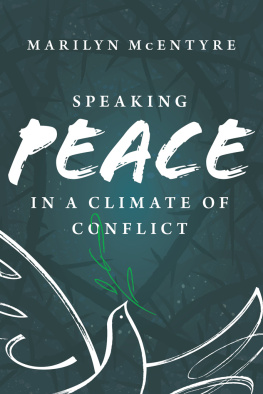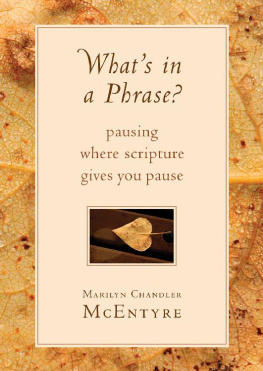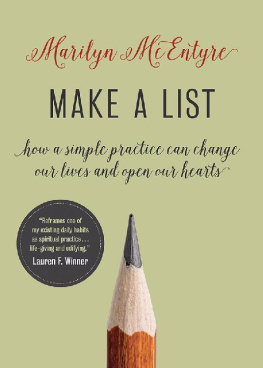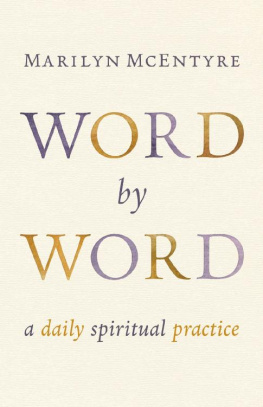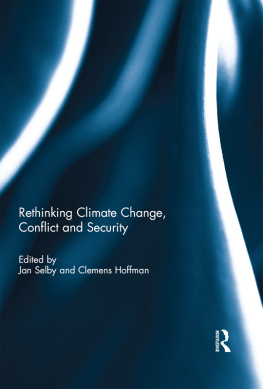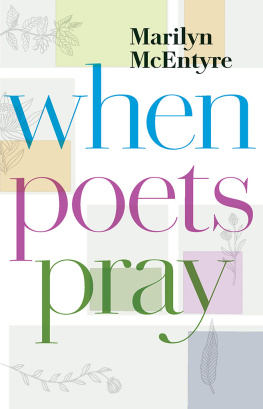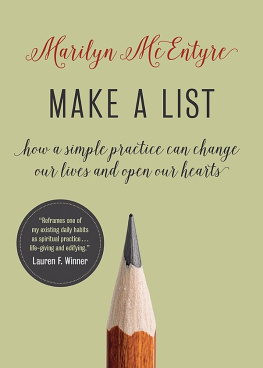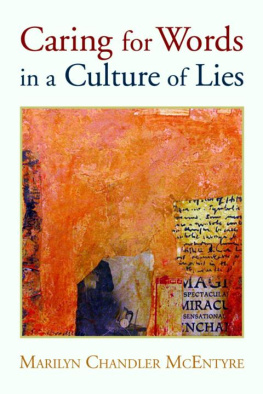Marilyn McEntyre - Speaking Peace in a Climate of Conflict
Here you can read online Marilyn McEntyre - Speaking Peace in a Climate of Conflict full text of the book (entire story) in english for free. Download pdf and epub, get meaning, cover and reviews about this ebook. publisher: Wm. B. Eerdmans Publishing Co., genre: Home and family. Description of the work, (preface) as well as reviews are available. Best literature library LitArk.com created for fans of good reading and offers a wide selection of genres:
Romance novel
Science fiction
Adventure
Detective
Science
History
Home and family
Prose
Art
Politics
Computer
Non-fiction
Religion
Business
Children
Humor
Choose a favorite category and find really read worthwhile books. Enjoy immersion in the world of imagination, feel the emotions of the characters or learn something new for yourself, make an fascinating discovery.
- Book:Speaking Peace in a Climate of Conflict
- Author:
- Publisher:Wm. B. Eerdmans Publishing Co.
- Genre:
- Rating:4 / 5
- Favourites:Add to favourites
- Your mark:
- 80
- 1
- 2
- 3
- 4
- 5
Speaking Peace in a Climate of Conflict: summary, description and annotation
We offer to read an annotation, description, summary or preface (depends on what the author of the book "Speaking Peace in a Climate of Conflict" wrote himself). If you haven't found the necessary information about the book — write in the comments, we will try to find it.
Speaking Peace in a Climate of Conflict — read online for free the complete book (whole text) full work
Below is the text of the book, divided by pages. System saving the place of the last page read, allows you to conveniently read the book "Speaking Peace in a Climate of Conflict" online for free, without having to search again every time where you left off. Put a bookmark, and you can go to the page where you finished reading at any time.
Font size:
Interval:
Bookmark:

Speaking Peace
in a Climate of Conflict
MARILYN MCENTYRE
WILLIAM B. EERDMANS PUBLISHING COMPANY
GRAND RAPIDS, MICHIGAN
Wm. B. Eerdmans Publishing Co.
4035 Park East Court SE, Grand Rapids, Michigan 49546
www.eerdmans.com
2020 Marilyn McEntyre
All rights reserved
Published 2020
262524232221201234567
ISBN 978-0-8028-7814-4
eISBN 978-1-4674-5988-4
Library of Congress Cataloging-in-Publication Data
A catalog record for this book is available from the Library of Congress.
Unless otherwise noted, Scripture quotations are from the New Revised Standard Version of the Bible, copyright 1989 by the Division of Christian Education of the National Council of the Churches of Christ in the U.S.A., and used by permission.
Contents
W ords are instruments of survival. We hear a lot of them, from routine exchanges with family over morning coffee to the news on the car radio, from song lyrics we barely register as they play on endless loops in stores to discussions in meetings, phone calls, and, if were lucky, good conversations with good friends.
As I write this, its not yet eight in the morning, but I have discussed dreams with my husband, listened to the lectionary readings, heard the morning headlines, and perused a few paragraphs in preparation for the days work. Already I have taken in more than sufficient words for a days reflection, but many more are to come. Words, along with images, are writ large on billboards, in shop windows, and on neon signs, filling the urban landscape. On my drive to Berkeley this afternoon I know I will see eye-catching appeals to choose a new healthcare plan, visit a casino, buy vodka or sexy blue jeans or a new smart phone, or repent and receive Jesuss forgiveness. Really. Those of us who inhabit urban and suburban environments have had to adapt to chronic word and image overload. We are assailed from every direction. Those of us who write, teach, or parent, and who play a part in public life, need, more than ever, to equip each other with words that will help us navigate the confusions and challenges of this historical moment.
Our times, as a lovely passage from The Book of Common Prayer puts it, are in Gods hands. Our times are also in oursthe rich, wild internet, the water crisis, widespread warfare, climate change, a polarized economythese are the conditions in which we are to work out our salvation together, listening to one another, listening for the voice of God in the silence behind all the chatter, and telling stories and singing songs that help, even in the midst of human squalor, to make all things new.
We need to learn new ways to speak peace, reclaiming words that have been weaponized and beating them into plowshares. We need to find words that comfort in the midst of new kinds of distress and sorrow and that sustain courage in the face of large and looming threats. Life-giving conversations require a willingness to wake up, be aware, peer into the darkness, consider and consult and open our imaginations to perilous possibilities. Because it is in that darkness that the Light shinesthere where the Word, which was in the beginning, emerges from the deeps of cosmic silence and summons us to listen and learn so that we may hear the word given to each of us to embody and speak into the world while we are here. It is tempting, rather than accept that strenuous invitation, to take refuge in the diverting cacophony, letting idle words wash over us while we float in a river of sound.
Conversationwhich once meant walking with one anotherhas historically been the warp and woof of community life. It provides (to switch metaphors) rich soil where thought and feeling can take root and branch and blossom. It equips us to venture out from our circles of trust into the fog of word wars, prepared to speak peace, to practice nonviolent communication, to reclaim and sometimes proclaim words that sound a ring of truth that can be heard above the drone of incessant distractions. These days, its a little harder to come bythe kind of conversation that does all those things. If we want to make space for it, we have to resist some powerfully erosive forces.
In these pages I offer reflections that have emerged from my own work with words as a reader and writer and teacher, but also from my growing concern about what is happening to words as more and more of them become contaminated and turn into triggers, as lies go unchallenged and honesty goes unrewardedor is punished. I have tried to identify a number of strategies for maintaining clarity, integrity, and authenticity in the midst of the morass, drawing examples from contemporary writers and speakers, stewards of words, from whom we can all learn. It is a time to be, as they are, deft and strategic, subversive, surprising, amusing, able to offer the occasional shock of recognition that reminds and reawakens. I offer my reflections in gratitude to those who have helped me sustain my own efforts to speak and to live with integrity and hopeto be a better reader, writer, and participant in the long, often contentious conversation weve been called to.
Lets start by considering how good stewards of language equip us to cope with a political discourse that consists largely of hyperbole, ad hominem attacks, spin, and sound bites. Increasingly over the past decade, accusations of lies, incompetence, bigotry, and corruption have filled airtime that could have been devoted to much-needed public education on urgent issues, fact-checked, focused, implications made explicit. The airwaves are full of voices shouting at each other from opposite sides of a widening battlefield where arguments over climate change, trade agreements, gay marriage, abortion laws, health care, immigration, and what to do about poverty and homelessness are buried in rhetoric that oversimplifies and obscures what is really at stake. And the battle lines run right down the aisles of churches: congregations split and splinter over how to worship, what the Bible really means, and what faith language to use.
George Orwell famously claimed that one of the reasons writers write at all is to make a political statement, or perhaps to influence political life. It is, in fact, impossible not to write politically: common discourse is charged with political associations that weight the words we use. Common words such as right or duty or threat or American or greatalong with any ism you might think ofare difficult to disengage from the partisan contexts in which theyre so loudly spoken. Speaking is not a politically or theologically neutral act any more than voting or buying, and the charge words carry is intensified in a climate of widespread verbal promiscuity and word wars.
Richard Mouw, former president of Fuller Seminary, put it this way in his thoughtful book about civility, Uncommon Decency :
One of the real problems in modern life is that the people who are good at being civil often lack strong convictions and people who have strong convictions often lack civility.... We need to find a way of combining a civil outlook with a passionate intensity about our convictions. The real challenge is to come up with a convicted civility.
To speak or write with convicted civility is to speak out in ways that shock, disturb, and indict readers complacencies without leaving those readers defensive, overwhelmed, or in despair about issues they feel powerless to address. How do we write so as to educate, encourage, and clarify? How do we craft sentences that survive and subvert organized confusion?
I offer the strategies in the coming pages not as an expert, and certainly not as a person who is politically or theologically neutral, but rather as a writer who is still gratefully learning from those who seem to me particularly effective in speaking truth to power, speaking for the poor, speaking up when its needed, speaking out for those who are silenced, and speaking for the rest of us when they are the ones who are in a position to do so and who recognize the call when it comes.
Font size:
Interval:
Bookmark:
Similar books «Speaking Peace in a Climate of Conflict»
Look at similar books to Speaking Peace in a Climate of Conflict. We have selected literature similar in name and meaning in the hope of providing readers with more options to find new, interesting, not yet read works.
Discussion, reviews of the book Speaking Peace in a Climate of Conflict and just readers' own opinions. Leave your comments, write what you think about the work, its meaning or the main characters. Specify what exactly you liked and what you didn't like, and why you think so.

